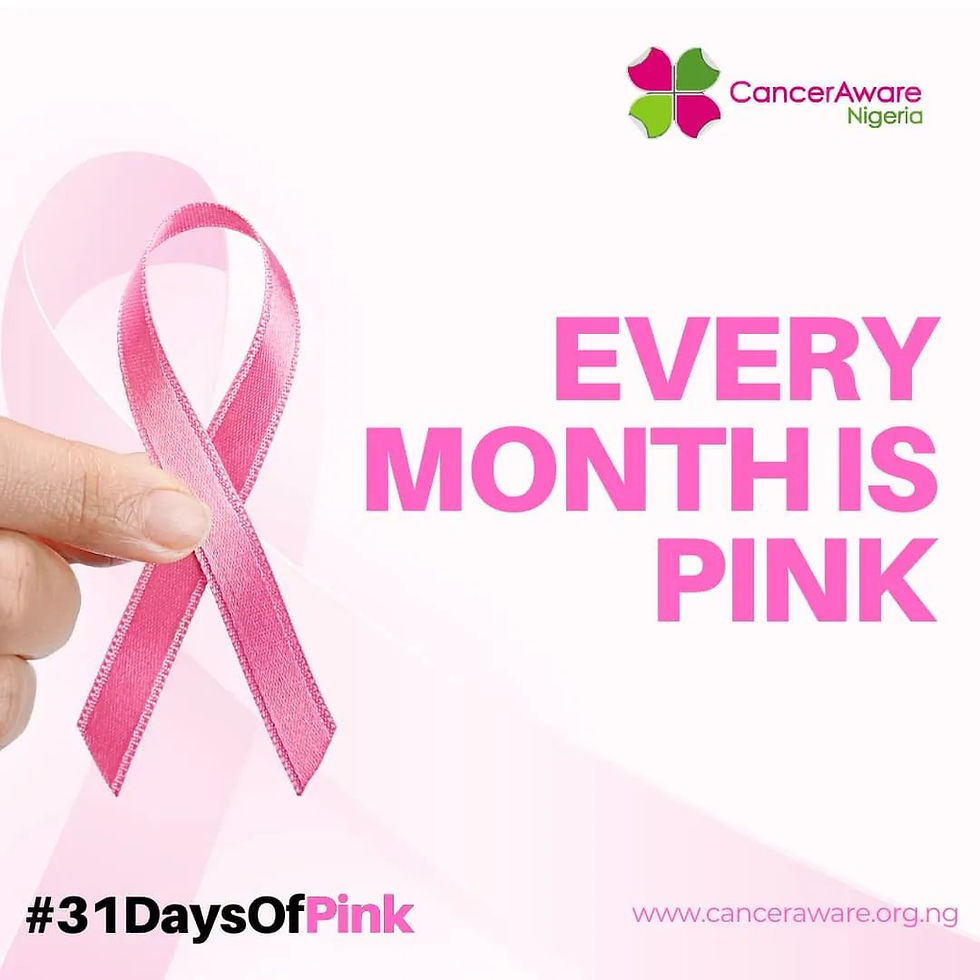COVID-19: What Patients with Cancer Should Know
- CancerAware

- Aug 19, 2021
- 3 min read
Cancer and its accompanying treatments can lower the body's ability to fight infection. Individuals facing cancer and their families might feel especially worried about the COVID-19 virus.
COVID-19 mainly spreads from person to person by respiratory droplets or aerosols. This happens when someone who has the virus coughs, sneezes, talks, or sings which releases tiny droplets into the air. These droplets can reach anyone who is nearby, and they can get the virus. The virus can also live for days on surfaces, so wash your hands and clean high touch surfaces regularly.
The risk of getting the virus is higher indoors especially in poorly ventilated spaces. To mitigate the risk of getting the virus in enclosed spaces, ensure you leave windows and doors open to achieve good ventilation. In addition to this, follow the correct COVID-19 protocols at all times whether indoors or outdoors by wearing face masks correctly and physical distancing.
Cancer and cancer treatments can weaken the immune system. Persons with cancer, or who are in active cancer treatment, older patients, and people with other serious chronic medical conditions, such as lung disease, diabetes, or heart disease are at higher risk for the more severe form of COVID-19 that could be fatal. They may need to take special precautions to prevent infection from COVID-19.
Also, persons with active or progressing cancer may be at higher risk than those whose cancer is in remission. The same rules apply for persons with cancer as for those without cancer; Wear your face masks correctly and at all times, maintain physical distancing, avoid crowds and poorly ventilated places and wash your hands frequently.
COVID-19 Symptoms
• Fever
• Dry cough
• Tiredness and fatigue
• Aches and pains
• Sore throat
• Diarrhea
• Conjunctivitis
• Headache
• Loss of taste or smell
• A rash on skin, or discoloration of fingers or toes
• Difficulty breathing or shortness of breath
• Chest pain or pressure
• Loss of speech or movement
Here are some things an individual can do to help prevent infection and illness from COVID-19 when the immune system is weak due to cancer and cancer treatment:
• Wear your face masks correctly and maintain physical distancing at all times.
• Wash your hands often with soap and water. Be sure to wash your hands before eating and avoid touching your face.
• Carry an alcohol-based sanitizer to clean your hands when you’re out.
• Use moist cleaning wipes to clean surfaces and things that you touch, such as door handles, ATM or credit card keypads, and any items that are used by other people.
• Avoid large crowds of people such as at schools, travel, shopping, social events, and public gatherings.
• Stay away from anyone with a fever, the flu, or other infection.
People who are at higher risk of getting very sick from COVID-19 should think carefully about non-essential travel and social gatherings during this period.
Stay at home to reduce your exposure to the virus, practice physical distancing and avoid social gatherings, including smaller gatherings with family or friends who don't live with you. If you have to go out, wear a face mask and make your trip out as brief as possible.
If it is possible that you have COVID-19, you should stay at home and isolate yourself while you are tested and waiting for your test results. If you live with someone, you should quarantine yourself in one part of the home, if possible, to lower the risk of spreading the virus to the rest of the people who live with you.
If you are concerned that you’ve been exposed to someone with COVID-19 and you have active cancer or are currently in cancer treatment, let your medical team know about your possible exposure immediately.
Credits: American Cancer Society




Comments